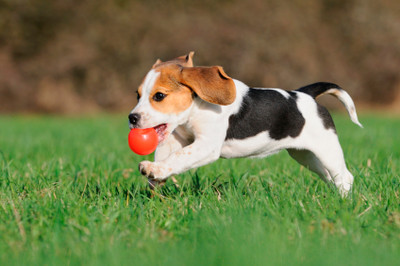Posted by Zena Conkey on Jun 12, 2020

Are you wondering why your puppy can’t seem to learn what you would like them to do but insists on repeating the behaviour which drives you mad?
If so, stick around because we’re about to explain in further detail how your dog learns by how you react to them. We also have many handy tips which will help you to dissolve any unwanted behaviours that your dog might have.
We already know that attention is rewarding, we know that dogs cannot teach themselves new and more helpful habits as they grow up. And we know that they need guidance in a language which they can understand. So let’s break this down and see some situations from their point of view.
Barking
The endless barker, you know the dog that barks at the wind or won't stop even when they don't need to go to the toilet. The reason for excessive barking is the dog knows it gets them attention. And we already know that anything that brings them attention also brings them reward - so what do you do?
Well, you give them attention when they're quiet. Completely ignoring young pups can sometimes frustrate them and cause confusion. If you know they don't need anything specific, you should reward them when they are quiet, your pup will soon make the connection and the behaviour will quickly change – particularly if the barking was a result of reinforcement from their environment in the first place.
Try to be proactive before unwanted behaviour such as excessive barking or jumping starts, remember processes such as jump - sit - reward and bark - quiet - reward. Another proactive method could include scattering feed at your feet to encourage calmness and giving them a toy to carry.
As for jumping as well as barking, you can engage with them before they jump up by playing with them and their toy, but keeping it close to the ground so they learn that they will receive their toy as a reward when not jumping up.
Mouthing
A common complaint from anyone who lives with a puppy is mouthing behaviour. Puppy teeth are like little spikey needles.
Now, as a side note, it is important for your dog to learn bite inhibition from a young age. The puppy’s mother would have allowed them to mouth her initially, and then she would have taught them to mouth her gently - then eventually not at all. Each time she would have used a short sharp sound to show her puppy that they have gone too far. This way they are learning that if they are ever in a position where they have no choice but to bite, then their first option is to do it gently, hence causing the least damage. You could try to repeat the process over the first few days of your puppy being home. Then it’s time to move on.
People, particularly children, tend to make a lot of fuss if a puppy mouths them. This reaction is rewarding and encouraging the dog to continue. We don't recommend squealing or boisterous reactions as this can frighten sensitive puppies and increase biting in excitable dogs.
Provide your little dog with toys suitable for teething. Because they will need to chew within the next few months as their adult teeth come through. Then when you are satisfied with their bite inhibition learning it’s time to transfer the chewing behaviour to the toys. Do this by replacing your skin with a chew toy so they learn to bite only the toy and not you.
Think of it this way, if they choose their toy then you have a game with them and give them a lot of praise and attention, you will be rewarding the behaviour of them choosing the toy. If they come to you and try to ask for attention by mouthing your hand but replace it with a toy, then you are not reinforcing that behaviour. Eventually they will miss out mouthing you altogether and just go straight for the toy.
This type of reaction will have a direct effect on how your puppy learns throughout life. It can be applied and adapted to all areas of behaviour. And it’s also the reason why punishment of any description will not teach your dog anything at all. When a dog is punished the behaviour has already been engrained in their mind, and the attention will encourage and confuse them.
So remember as your puppy is growing;
- Be proactive and train before unwanted behaviour starts
- Only reward good behaviour
- Give your puppy the opportunity of replacement behaviour if necessary
- Punishment does not work and is confusing
And enjoy your puppy's company while you can – they will be all grown up before you know it!
